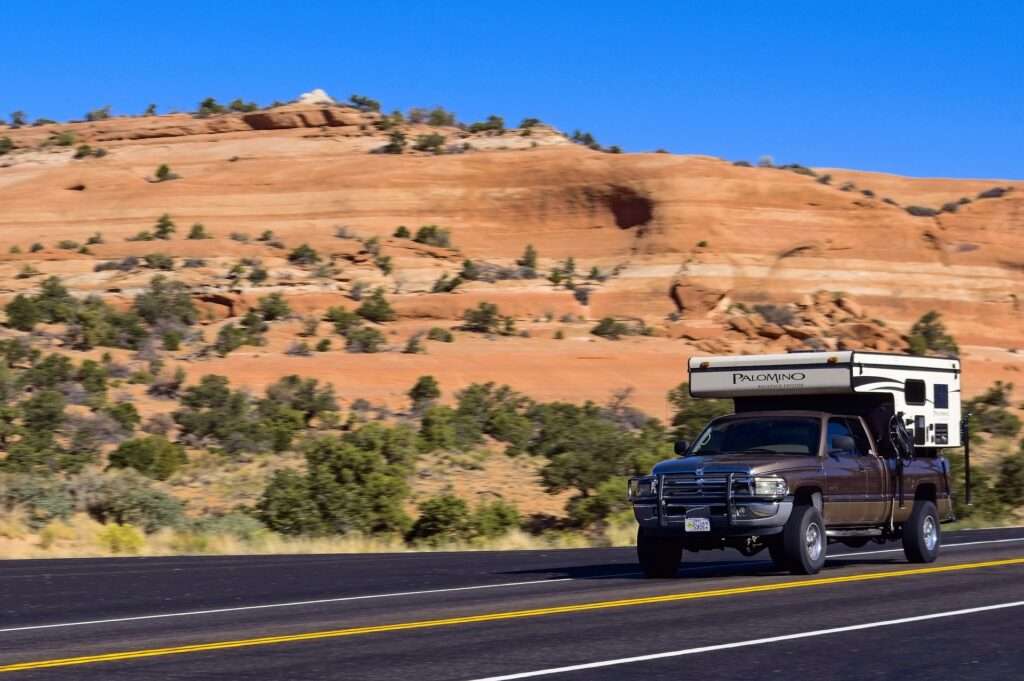What Makes The RV Traveler Fly?
Yes, the lush green stretch of endless roads surrounded by stunning mountains with the cool breeze blowing and touching your spirit as it dances across your face, sweeping you off your feet, making it next to flying.
What Is A RV?
A RV, often known as an Recreation Vehicle, is a motor vehicle or a trailer primarily used for traveling, camping, road trips, and outdoor activities.
You will find different types of RV classes and RV Towable offering various amenities like sleeping quarters, kitchens, and Bathrooms, trying to load you with a feel of home while moving.
A typical RV can range from the smallest drivable class B Motorhomes to towable RVs like a folding trailer pulled behind a vehicle.
Why Recreation Vehicle?
RV gives you the ease of freedom in traveling with the flexibility to cut short or extend your trip, with the RV equipped with minimum necessary amenities and flexible as per customer’s requirements.
There is a growing demand for RVs owing to multiple factors, with a large population keen to rediscover the outdoors by shying away from the city’s hustle and bustle and settling down towards a calmer and peaceful environment in an RV lifestyle.
Another critical reason for RV’s upward trend is the remote work opportunity offered by some large corporates for flexibility to work from anywhere while simultaneously exploring outdoors.
More and more people regularly participate in outdoor activities like camping, fishing, hiking, and boating, which has led to the demand for RVs to stand stationed in remote locations with minimum comfort.
Thus, RVs have become a home away from home, with nearly 11.5 million US households owning an RV and an increasing number of 40 million Americans regularly RVing.
The trend is also catching up with millennials, with a staggering 38.5% actually owning a recreational vehicle out of the 40 million regular rvers.
You will also find a current trend of senior citizens retiring to the RV lifestyle to explore the country outdoors to have a sense of freedom and catch up with new people.
The market size of recreation vehicles is rapidly growing, with a current size of US$33.32 billion and projected to reach US$49.16 billion at a compounded annual growth rate of 8.16% by 2029.
There is a heavy rush in RV rentals and the Purchase of New RVs because of people’s genuine increasing interest in going outdoors, be it a weekend getaway or traveling in a group and taking a break from their hectic schedule.
Types Of RV classes
Choosing an RV Class often needs to be clarified whether you are a regular RVing or new to RV Club.
Your selection of an RV class primarily depends on your destination, budget, duration of your trip, short or long trip, amenities requirement, and count of your traveling partners, such as a small family of two or three or a gathering of old pals.
So let’s hop in for a ride and choose the Best RV.
You will find a wide range of RVs of different sizes and classes.
Regardless of their wide variety, RVs are divided into two categories: motorhomes and towable.
Motorhomes
Motorhomes are self-driven RVs equipped with living accommodations and are classified into three segments: Class A, Class B, and Class C.
Class A Motorhomes
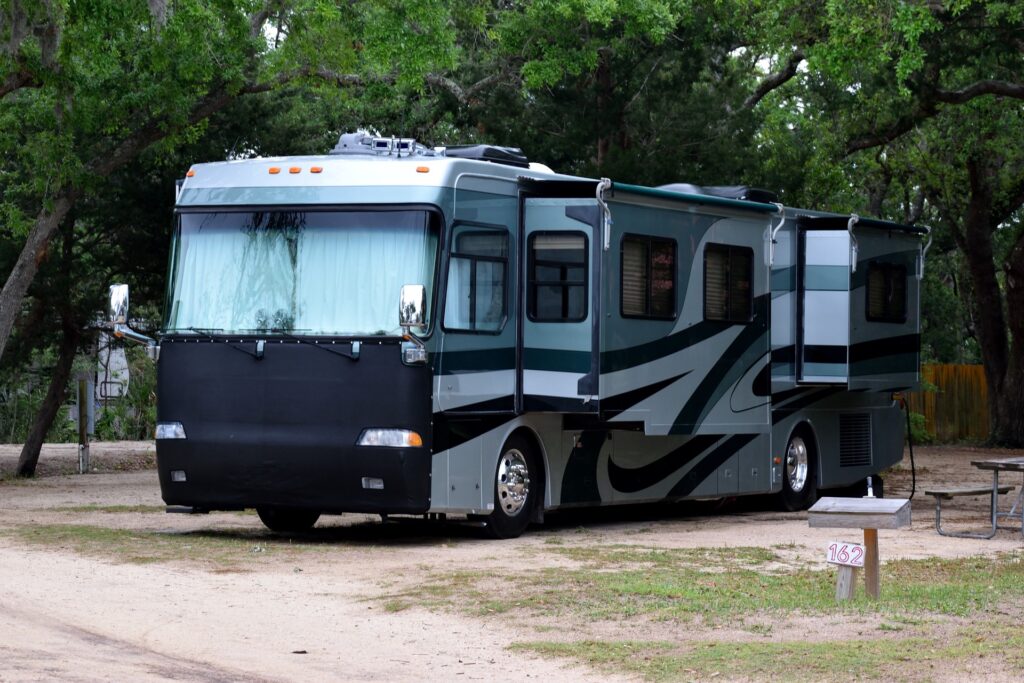
An A-class motorhome is often called the most luxurious, spacious, and expensive RV class.
The built quality makes the class A motorhomes robust, either from a vehicle’s heavy-duty frame or a commercial bus chassis. Depending on the engine, it can run on a gas or diesel.
Primarily suitable for large families and full-timers, it can accommodate eight to ten people, which is preferable for a long extended stay and full-time RVing.
The class A motorhome makes you feel at home while on the road, as it’s already loaded with the comfort of a TV, refrigerator, bathroom, and kitchen.
Class A motorhomes are the Big Daddy of all RVs and fit the bill when a big gathering is on the move without compromising luxury.
Some key points to note before proceeding with a class A motorhome.
Class A motorhomes are difficult for quick maneuvering in little spaces.
Their Poor fuel efficiency because of their large size makes them less budget-friendly.
Class A is not very popular with youngsters and millennials, as it refrains from the very purpose of staying in the lap of natural surroundings.
However, they are difficult to ignore if you seek the best in class in luxury and ease of use.
Class B Motorhomes
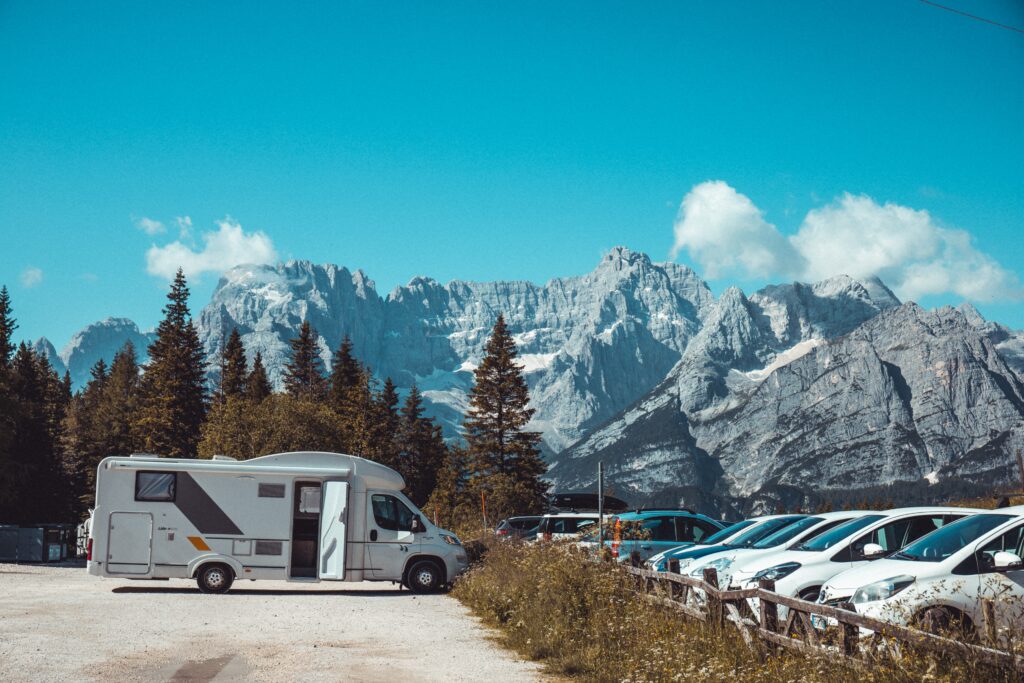
Best suited for weekend gateways and short stint travels, Class B motorhomes are the smallest of RV classes and are famously known as campervans or camping cars.
Class B motorhomes are aggressive and adventurous and can park themselves in remote, upbeat campsite locations, which are primarily tricky for other Class A and Class C motorhomes to navigate and camp.
Class B motorhomes are not as spacious and luxurious as class A but are equipped with requirements like a small kitchen, toilet, and living space; class B offers a small refrigerator, heating unit, and dining space.
Class B is the ultimate choice for quick travelers and Gen X because of the lower price and excellent fuel efficiency, with an average of 10-15 MPG. with some models hitting 25 Miles per gallon.
With an additional mattress Class B can sleep from two to four people.
The class A built is for a few travelers, with a view for a short break, and is easy to operate.
Class C Motorhomes
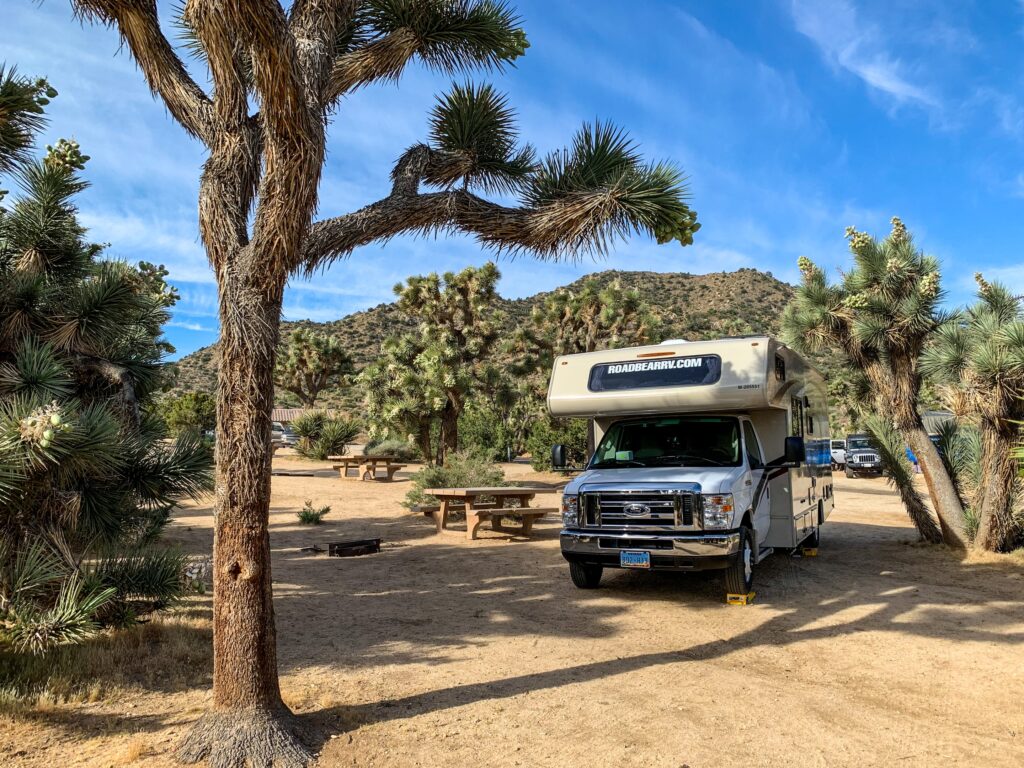
Built on a regular truck chassis loaded with all required amenities, Class C Motorhomes fits your bill,
If you are not comfortable driving a big-size class-A motorhome.
They can sleep up to two to six people and are equipped with sleeping, storage, Toilet, and cooking facilities; in some Class C, you will also find the comfort of a refrigerator and Air Conditioning.
Class C campers offer flexible options with drop-down beds and sleeping space in the back, thus creating more living space.
While on the move in Class C, both the living and driving compartments are accessible since both are connected.
Class C campers are not significant in fuel efficiency; however, they are better than Class A.
Class C caters to a wide range of quality with a varied price band and a preferred pick. For travelers with extended stays at a single location before hopping to another camping site.
Towable RV Classes
As the name suggests, Towable are simple RV classes being pulled behind your vehicle, either a truck, SUV, or a big car capable of towing.
Irrespective of their different sizes, pricing, and amenities, your vehicle’s towing capability is critical when choosing a towable trailer.
Let’s dive more into different types of trailers.
RV Folding Trailers or Pop-Up Trailers
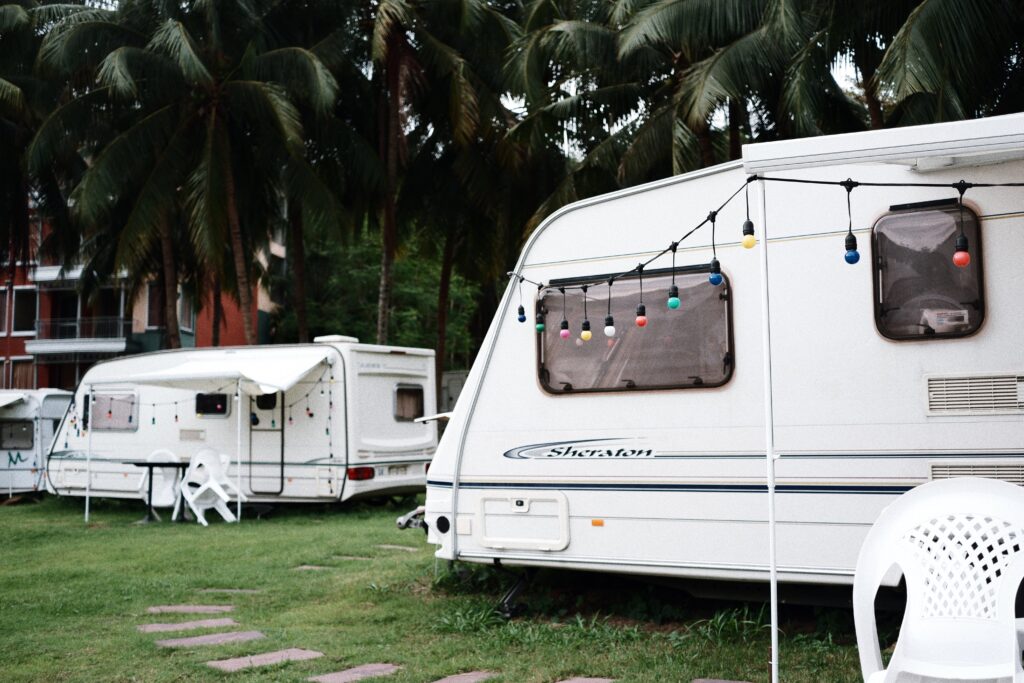
Folding trailers can be easily hooked into a car or an SUV with the right towing equipment in place.
You will find them with collapsible canvas curtains on both sides and can be unfolded physically.
Pop-up trailers are affordable, compact, lightweight, and easier to set up, tow, and maneuver.
Folding trailers also offer multiple beds, a kitchen with a sink and a stove, and a dining area.
Folding trailers, due to their flexibility, always help to have a better camping experience.
Travel Trailers
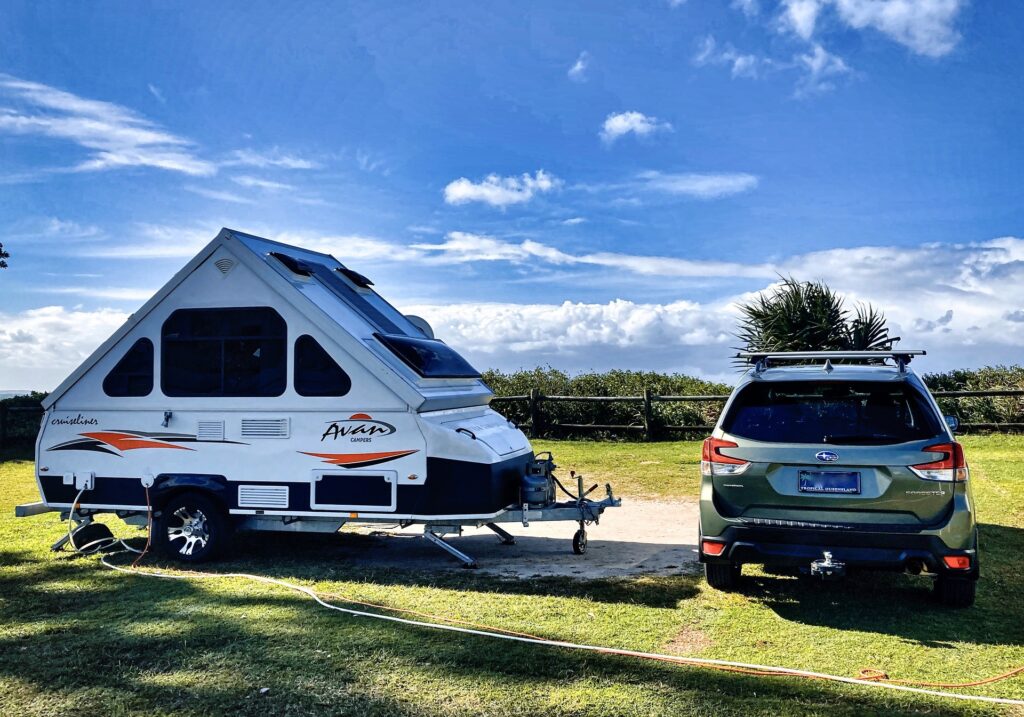
Travel trailers can be pulled by an SUV pick-up truck or van.
However, the vehicle must be fixed with a specific towing hitch to maintain the movement of the trailer while on the move.
Travel trailers are usually spacious and have essential amenities for a comfortable stay.
Travel trailers require some skill and expertise for towing and maneuvering because of their higher instability on the road.
At times, you can also leave behind your trailer at the campsite for further exploring with your vehicle.
Fifth Wheel Trailer
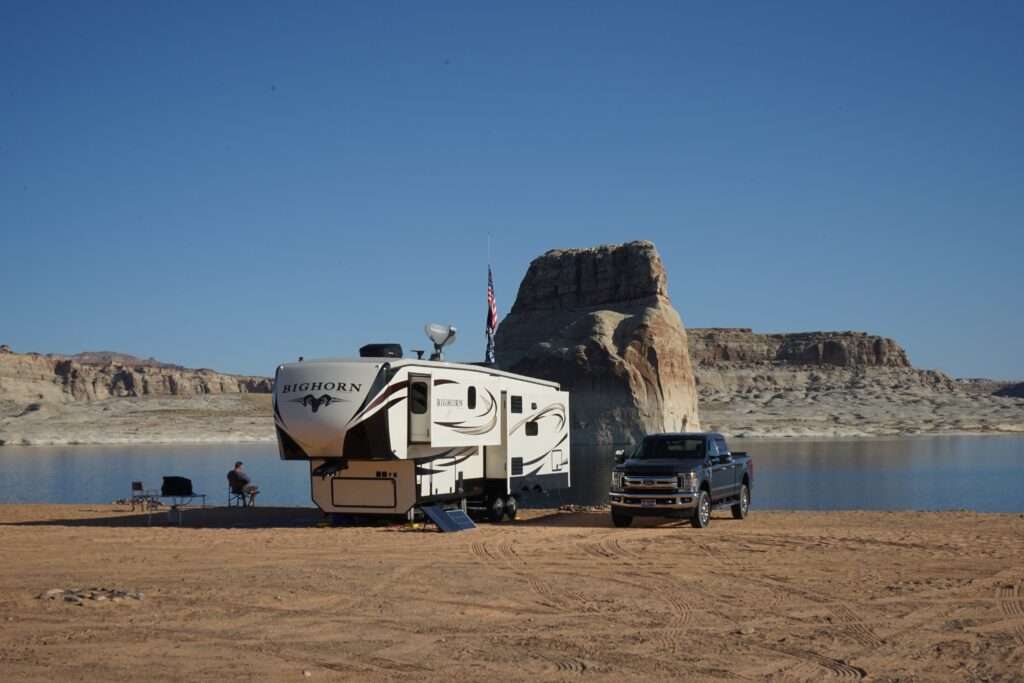
The fifth-wheel trailer is spacious with more interior space and has been connected to a hitch inside the truck’s bed called a fifth-wheel hitch.
The fifth-wheel hitch is robust compared to a bumper level, making the towing more stable and secure.
The fifth-wheel trailer is ideal for groups and families, with almost all amenities like kitchens and bathrooms, bedrooms, and sometimes an entertainment lounge.
The FWT is also suitable for extended staying at a single location and enjoying the home’s comfort while on the road.
While the FWT is more secure, the downside is that it requires a pick-up truck to tow it.
An FWT Can be more expensive and sometimes challenging to park and maneuver.
It is always advisable to check the size of the FWT before going ahead and ensuring the pickup truck is well-fitted with the towing equipment.
Toy Hauler
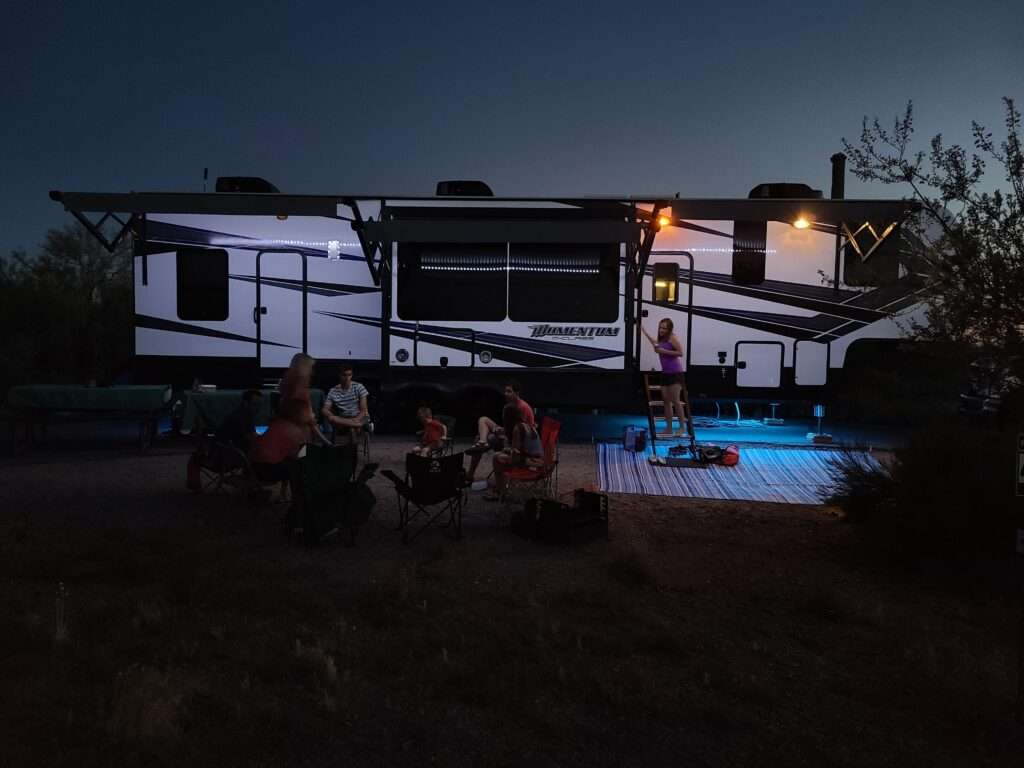
As the name suggests, Toy Haulers are trailers with garage facilities and a ramp in the rear of the RV that can be lowered to load your transport toys like ATVs, dirt Bikes, kayaks, and Snowmobiles.
Usually fits into a regular outdoor enthusiast keen to explore further near the camping areas with your available toys without any hassle.
Toy haulers come in different sizes, from small travel trailers to fifth-wheel trailers.
While not in use, the garage space can be used as a sleeping room and living area.
The make of a Toy Hauler is solid and requires a heavy-duty truck for towing it.
Toy-haulers give you a unique, adventurous experience if you like traveling with your Toys.
Truck Camper
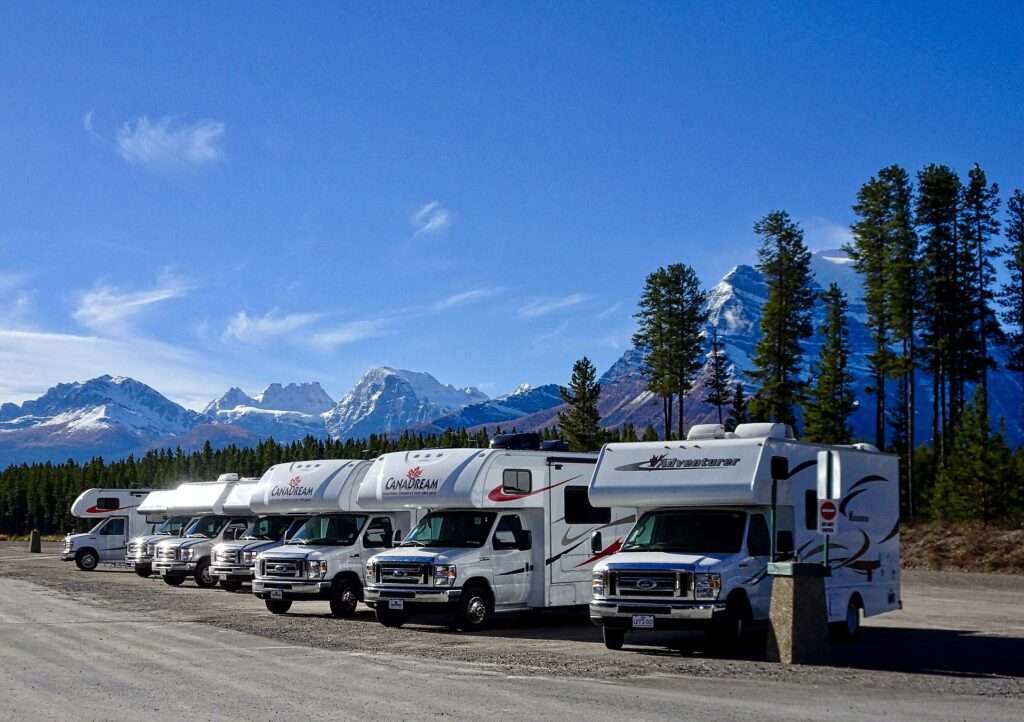
Truck campers are RVs that mount themselves fully and ideally in the bed of a pick-up truck.
It is best suited for an individual or two, is the least expensive, and is easy to drive, park, and maneuver.
Mostly, you will find truck campers added with amenities like a kitchen, bed, and bathroom.
They can go off-road and can be used for remote camping with comfort.
A truck camper runs on lower maintenance costs with greater fuel efficiency.
Truck campers are an excellent option for short trips.
However, in a TC, while on the move, both the driving and living compartments are not accessible to each other.
How Do You Choose The Best RV?
Now that you have a bundle of ideas regarding the type of RV, it is time to choose the best RV that fits your bill.
While choosing the RV, ensure it fulfills your basic needs and requirements.
Some key factors to consider while choosing an RV are highlighted below.
Budget
Budget Of course, since the RV gateways don’t have to burn a hole in your pocket.
The type of RV offerings is vast, with varied price ranges.
RV Range Can shoot from a few thousand dollars to hundreds of thousands with increasing options, bigger sizes, and higher technology.
For example, travel trailers cost less than class B motorhomes, while motorhomes are self-driven, and trailers are towed to vehicles.
Head Count
Yes, it’s a family RVing together or a reunion for a group of friends, which ultimately leads you to decide the type of RV to choose that can make space for everyone to sleep comfortably.
While a campervan can accommodate two to four people, a spacious motorhome can accommodate eight to ten people.
The bigger the RV, the costlier it becomes. It is ideal to keep track and choose an RV that initially suits your approved budget.
Amenities
You will find RVs offering the comfort of a home like a kitchen, bedroom, bathrooms, and sometimes entertainment zone.
Different RVs offer different amenities; however, if you are budget-driven, ensure the essential amenities are in place to keep you going.
Type of Rving
So, what’s your plan for driving?
Your type of RVing helps you choose the right RV that suits your requirements.
A camper van for two to four people is the best option for a quick gateway, while a fifth-wheel trailer fits for groups and families with an extended staying option.
If you have plans for off-road camping, a truck camper goes deep into remote camping.
Or, if you want to stay calm and chill in an RV campground
Thus, once you finalize your preferred type of RVing, Subsequently it would be helpful to pick the right RV.
.
How do you choose your RV destination?
Once you have chosen the RV, considering various factors, it is time to select your best RV destination.
It’s always fun exploring newer locations.
However, only some questions are to be asked before planning your route.
Like
How many days are you planning to hit off the road with an RV?
Is it a short weekend trip, an extended vacation, or juggling work and leisure?
What’s your plan of action?
Are you into the wilderness, traveling through the best scenic route to your destination, or settling peacefully in a winery?
What interests you most?
Camping on the top of a mountain, visiting historical sites and national parks, or lying leisurely near the beachside.
Choose your destination wisely, considering the season and weather of the year and equally aligning it with your budget so it won’t become too expensive.
See the number of free days with you and how far you can travel.
Finally, you should make the most of your trip for a memorable experience.
First Timer
The RV trip is getting immensely popular and showing no sign of slowing down, with more than 99% of Americans inclined towards leisure travel and outdoor activity, out of which 61% have a keen interest in an RV trip and more than 12% of people planning for a first time Road trip and renting an RV.
While the first-time RV trip is thrilling, some preparedness and planning will always make it more exciting and enjoyable.
So what’s in the Store?
Let’s have some quick essential tips to make your trip successful.
Finalize your destination; start slow. Being a first-timer, picking up a nearer location within driving reachability from your home would be suggested for a reduced travel time and more enjoyment at the campsite.
Check your time budget and plan accordingly.
Ensure your periodic halts to enjoy your trip and not just be constantly on the road.
Booking campsites in advance is a must, especially if traveling in the peak season.
Once the location is fixed, scout for an RV suitable to the route.
Is it a rough terrain?
Or a well-maintained RV-friendly road?
Make sure your RV fits in.
Take stock of the required amenities in the RV, the number of people traveling with you, and the space required accordingly.
Pack light primarily the needed ones only.
Be on your toes for the unpredictable weather.
Ensure you have warm clothes, rain gear, and the tool kit; a first aid kit is handy.
Consider RV insurance to be at peace with yourself.
Sit back, relax, and enjoy your trip.
The Right Gear
Packing the right gear is always helpful in making your trip a success, though the list is never-ending; however, some essentials and quick packs are listed below. Are like cooking and bedding supplies, rain gear, and warm clothes
Cooking Gear- Camp Stove, Utensils, Cups & Plates
Flash Lights – Lanterns and flashlights to light at night and brighten your path. You can carry headlamps, which are light and handy. It’s even better to have candles and matchboxes.
Sun Protection – Carry good sunglasses along with Face and body Sunscreen with a Sun Protection factor ranging from 25-35+ to safeguard your skin from high sun rays.
Bug Spray – You must carry it to secure yourself from mosquitoes, flies, and other biting insects.
Rain Gear – Better to carry to avoid uninvited rain and sudden downpour
Warm Clothes – Especially to carry in winter to prevent cold and keep warm
First Aid kit – You Should have it for quick responses to any minor injuries
RV Manual – It’s a must to have first-hand information regarding how to handle and operate an RV with the various features and appliances
RV Hose – Required for connecting your RV to a freshwater source, primarily for drinking water
RV Sewer Hose – Required for transporting waste from your RV
RV Electrical Cord – Connects your RV to an electrical outlet
RV Mattress – Carry Mattress to have a better and more comfortable sleep
Make space in your RV to carry camping chairs and tables to make the outing comfortable.
Remember bedding items like blankets, pillows, and toiletries.
Pack more T-shirts, shorts, comfortable shoes, or a pair of Crocs and Towels.
Pack Smart and light depending on the size and space offered by your RV.
Gathering Information
Being a first-timer or already an experienced RV traveler, it’s always preferred to prepare yourself well in advance for the trip. Always an advantage
Gather maximum information related to your RV, route, and your destination.
To start with, get a hang of your RV. Start practicing it in parking lots and driveways to get a grip before hitting the road.
Enroll yourself in an RV driving class for swift maneuvering of the RV
Join an RV club or some RV forum for better networking and guidance for the trip.
You should review some RV journals to get updates and learn as much as possible about handling minimum procedures like connecting your RV to hookups like electricity, water, and sewer.
Double-check your routes, and collect maximum info about road status, upcoming weather, and distance.
Start early to reach early, much before evening and night.
Identify stopovers before your trip for food and time-restricted breaks.
Ensure camping sites are booked in advance, whether it’s a peak or off-season.
Use an RV route planning tool to identify roads better and know before any obstruction.
Lookout for a friendly destination, keeping in mind a short drive and a long break
Connect with veteran RV travelers about your destination.
Google RV travel websites like Outdoorsy to find the best destination near your location.
They will offer you the best in class for your RV trips, considering all your key factors like budget, approachable destinations, and RV fitting as per your requirements.
If time permits, you can also attend RV workshops and Expos to gather more information about your destination and the latest trends in the RV industry.
Conclusion
RV trips are remarkable journeys in our memories for a lifetime.
However, you must be flexible and ready to take up challenges during the trip.
Whether it’s the RV, route, or destination, careful planning in advance will make the trip easier and happier.
RV trips offer a unique way of exploring the great outdoors and connecting with new people throughout the trip.
The trip is about going easy, staying back, and enjoying every moment and the breathtaking landscapes.
Don’t over-pack. Plan to carry plenty of water and extra food to avoid last-minute shortages.
RV insurance is necessary for your and the RV’s safety against untoward incidents.
RV trips take you into unexplored territory and pause with the abundant natural beauty to sit back, relax, and enjoy the moment.
An RV trip is a great way to gain a new, rich experience, restart again, and create memories for an everlasting lifetime.
Have Great Fun and enjoy the trip.

